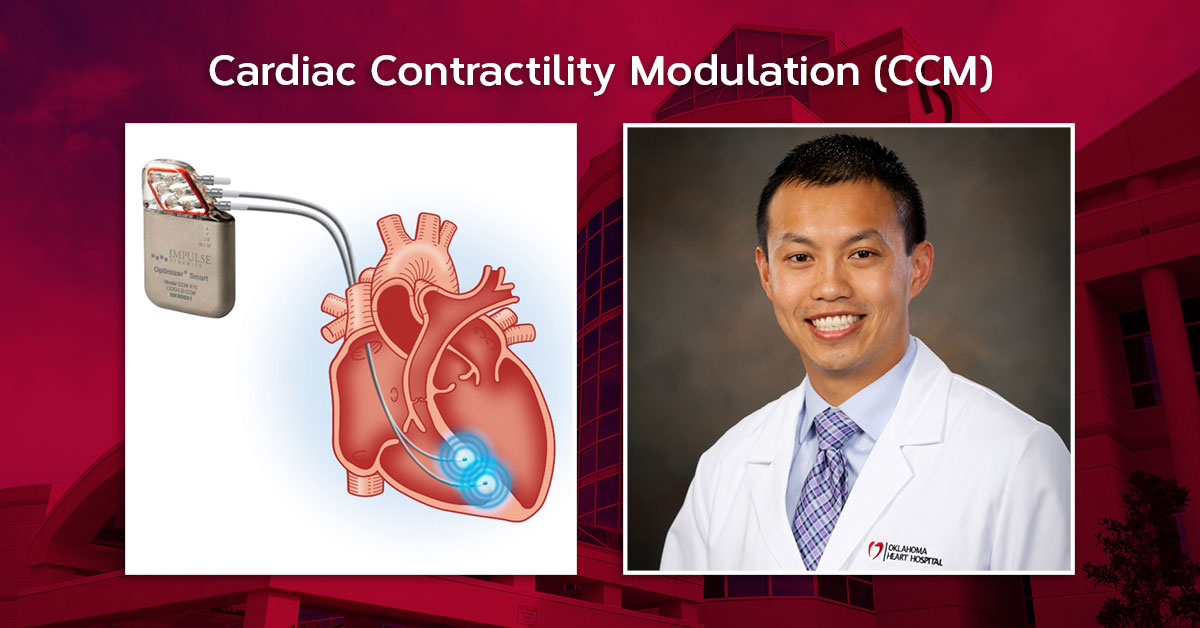New Device Offers Heart Failure Patients New Treatment Options

From the Seminole Producer – October 6th. 2021:
Oklahoma Heart Hospital is among the first cardiovascular hospitals in the nation to deploy a new FDA-approved heart failure treatment designed to improve contractions of the heart muscle to promote healthier blood flow to the body for patients with chronic heart failure or cardiomyopathy.
The therapy, called Cardiac Contractility Modulation (CCM), is delivered by a pacemaker-like device implanted near the patient’s heart that sends precisely timed electrical pulses to improve the squeezing function of the heart in the lower chambers called the ventricles. These electrical impulses are able to favorably alter intracellular signals and enhance calcium delivery to improve heart function.
Heart failure is a degenerative disease impacting the ability of the heart muscle to effectively pump blood over time. The result is a steady decline in the quality of life for heart failure patients and can be fatal. Typical symptoms include breathlessness, fatigue, confusion and swelling in the legs that progressively grow worse without intervention.
“The Cardiac Contractility Modulation device is an innovative new way to treat heart failure by directly stimulating the heart muscle to essentially beat stronger and more efficiently and as a result pump more oxygen-rich blood throughout the body,” said Oklahoma Heart Hospital Electrophysiologist Dr. Charles Te. “This device has also been shown to decrease the risk of cardiovascular death and heart failure hospitalizations. Heart failure patients are typically treated first with medications and lifestyle changes, but when those options lose their effectiveness, this device can help give patients a noticeably improved exercise tolerance and quality of life.”
The device maker – Impulse Dynamics – reports the CCM treatment is 70 percent effective in heart failure patients who still experience symptoms even while taking optimal medical therapy for heart failure.
“The CCM device may look like a traditional pacemaker or implantable defibrillator, but it helps the heart in a much different way,” continued Dr. Te. “The pulses emitted by the device don’t change the rhythm of the heart like the older devices but instead stimulate chemicals and genes in the heart to enhance calcium delivery that naturally improves the muscle’s ability to regularly pump and has shown long term benefits and safety. The result is a more natural and long-term solution for many of our heart failure patients who continued to have heart failure symptoms despite optimal medical therapy.
